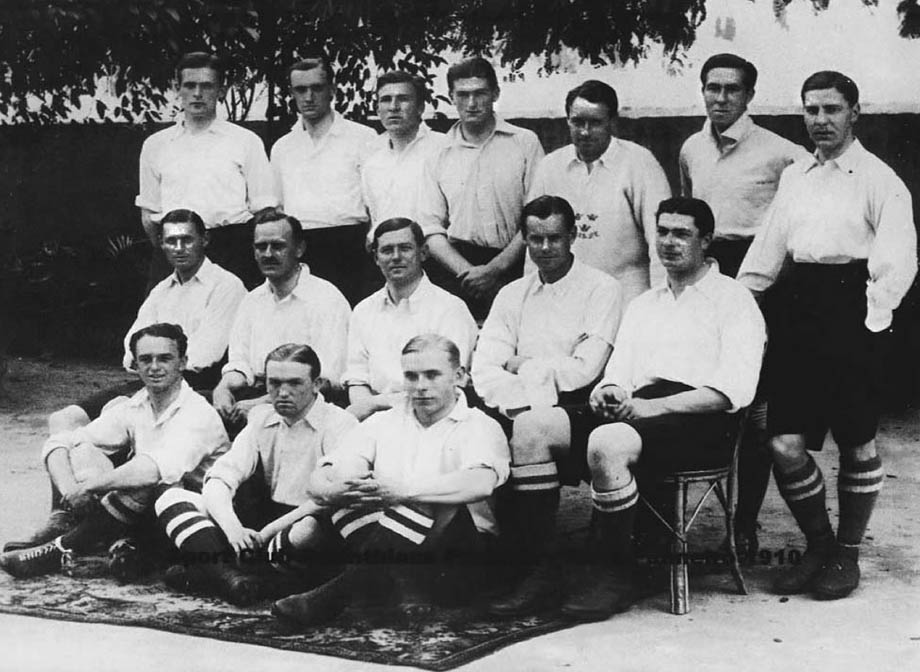By Jonny Garwood
Now is the time to close the blinds on another season of joy and despair. Association football, often known simply by the Rugby School coined suffix of ‘soccer’ in English speaking countries, has perhaps one of the most intriguing histories of any sport to grace the Earth. Reformed and standardised by an organisation now known as the Football Association in 1883, rules and standards associated with the sport had previously been disputed. In the United Kingdom, various methods of play were adopted by clubs and local public schools, with the early-adopted ‘Sheffield Rules’ having a major influence on the composition of gameplay today. Later inaugurations of the game inspired modern sports such as Rugby, Swedish Handball and the National Football League in the USA. Despite the game’s historical roots in South Yorkshire, as a sport, association football can be traced as far back as Ancient China in an early form known as ‘cuju’, which is now recognised by the international governing body, FIFA. One question should be asked; how did the sport catch the nations’ hearts, despite a history of associated controversy?
As a sport, the game has a somewhat tarnished history. Notable acts of hooliganism throughout the 1980s, which at one point led to the temporary banning of British clubs from all European competitions, has meant that association football is often viewed through a lens of controversy, even today. Famously, the British Highway Act of 1835 banned the sport from public highways, whilst similar attempts had been made as early as the Richard II’s reign in 1389. Throughout history there have been various reasons for contention to the sport, given banning attempts were made initially due to perceptions of the game as a barrier to productivity, whilst later, to curb the the threat of improper behaviour and disorderly conduct. Despite historical negative connotations, the game undoubtedly has a significant global appeal, most notably through its ability to unite and engage communities across the world.
Resultantly, one consequence of the mainstreaming of association football as a sport was the adoption of team names, often chosen in recognition of the local area. Teams sprung up from worshipping communities, as was the case with Saint Mark’s Gorton, which later became Manchester City FC, whilst teams were often confounded simply as ‘sports’ clubs, alike Sheffield Wednesday and Fulham, which later divided from their cricket-based roots and competed in the English First Division. Many of these teams were set up as Church-led community projects, with the aim of diverging locals from organised violence and alcoholism, as clubs were set up in recognition of their impacts on the local community. Consequently, the aim was to unite- hence the ubiquity of ‘United’ as a team name throughout Britain and the English-speaking world. Separately, it could be asked, who would have thought the sport would ever be so appealing to investors as a commercial enterprise, with such huge sums of money involved, and to fans, as it is today?
In Europe, as the game’s earliest interpretation can be linked back to the Swiss Laussane Football and Cricket Club, founded in 1860, as the game was widely adopted across the continent during this period, as again, recreation and community engagement were crucial factors. Corinthian F.C., an amateur club with roots in West Kensington, are widely credited with bringing the game to South Africa, Brazil, and the surrounding South America. Likewise, with the aim of unification, the club encouraged an attitude of fair play and sportsmanship amongst participants, even playing so true to the club’s internal values that they would refuse a penalty on the basis of an intentional foul on an opponent. Corinthian FC promoted fair values and kinship, even going to the point of paying for the travelling expenses of the then-formed South African football association. Today, the club is now defunct, however heralded in history under the name of Corinthian Paulista FC, based in Sao Paulo, Brazil. Similarly, the club’s strip later inspired that of Real Madrid C.F. and Leeds United in Yorkshire.
Today, in Europe, clubs such as Borussia Dortmund and Manchester United possess stadiums with the ability to hold over seventy-thousand spectators, whilst in Argentina and Brazil, many stadiums welcome even more supporters. In conversation, a proud supporter will undoubtedly profess the acclaimed history of their self-heralded club, however, many will ignore the history and potential of the sport. Statistics show that, today, the game is played in over 200 regions across the world, thus demonstrating that as a sport, football has not strayed away from its roots. Clubs are often the cornerstones of their societies, acting communities and entertainment venues for their fans to enjoy. Present examples demonstrate the ability of association football to cross divides and unite communities in locations where peace would otherwise, although often temporarily, be unfounded and such is the appeal of such a game which has touched and entertained so many, with so much at stake, despite the tension and associated extravagance of it.

